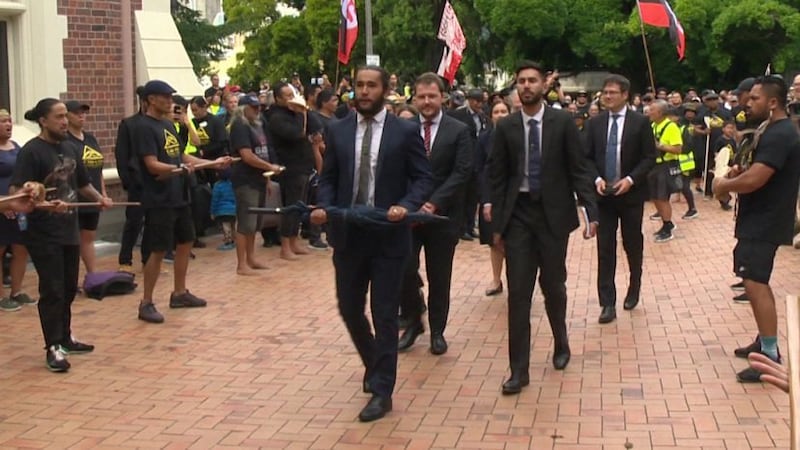Today was the second day of the marathon 10-week case brought by Ngāti Whātua Ōrākei against the Crown in the Auckland High Court.
The crux of the case by Ngāti Whātua is that the Crown's position of using land within an iwi’s border to settle claims of other Iwi, has infringed upon its 2006 Agreement In Principle, and in particular Ngāti Whātua's right of first refusal.
According to Ngāti Whātua Ōrākei lawyer Jack Hodder, QC, "This case really goes to the heart of the Crowns position of cross-claims, and will have huge ramifications for other iwi around the country who have been subjected to this form of settlement."
Ngāti Whātua touched upon on some of the key events in relation to the claim, reinforcing its position that it, and it alone, holds mana whenua and ahikā in Tāmaki Makaurau.
In 1869, the Native Land Court surveyed the Orakei block and awarded it to 13 people. The overwhelming majority of the more than 100-strong hapu were legally disinherited of their land. The chief at that time, Tuhaere, had a plan to subdivide the block and lease it to settlers, whose rent would ensure that the hapu maintained an economic base. However, when only 13 owners were named, tribal control of the land, and their ability to use the land for the economic benefit of the whole hapu, was lost forever.
In 1840 there was a transfer of 3000 acres from Hobson Bay, Cox’s Creek and Maungawhau. The Crown acknowledges that the transfer was in order to build a mutually beneficial relationship. Ngāti Whātua Ōrākei sees the 1840 Transfer Land as especially precious to Ngāti Whātua Ōrākei as a fundamental part of its heartland, and it has been particularly aggrieved by Crown actions to offer land in that area to other iwi, for their treaty settlements.
Ngāti Whātua says the Wai 1362 Tāmaki Makaurau Settlement Process Report from the Waitangi Tribunal appears to have had considerable influence on Treaty settlements and the Crown’s overlapping claims policy. That report followed an urgent inquiry into claims that six different groups were adversely affected both by the process and proposed outcome of the Treaty settlement negotiations between Ngāti Whātua o Ōrākei and the Crown.

